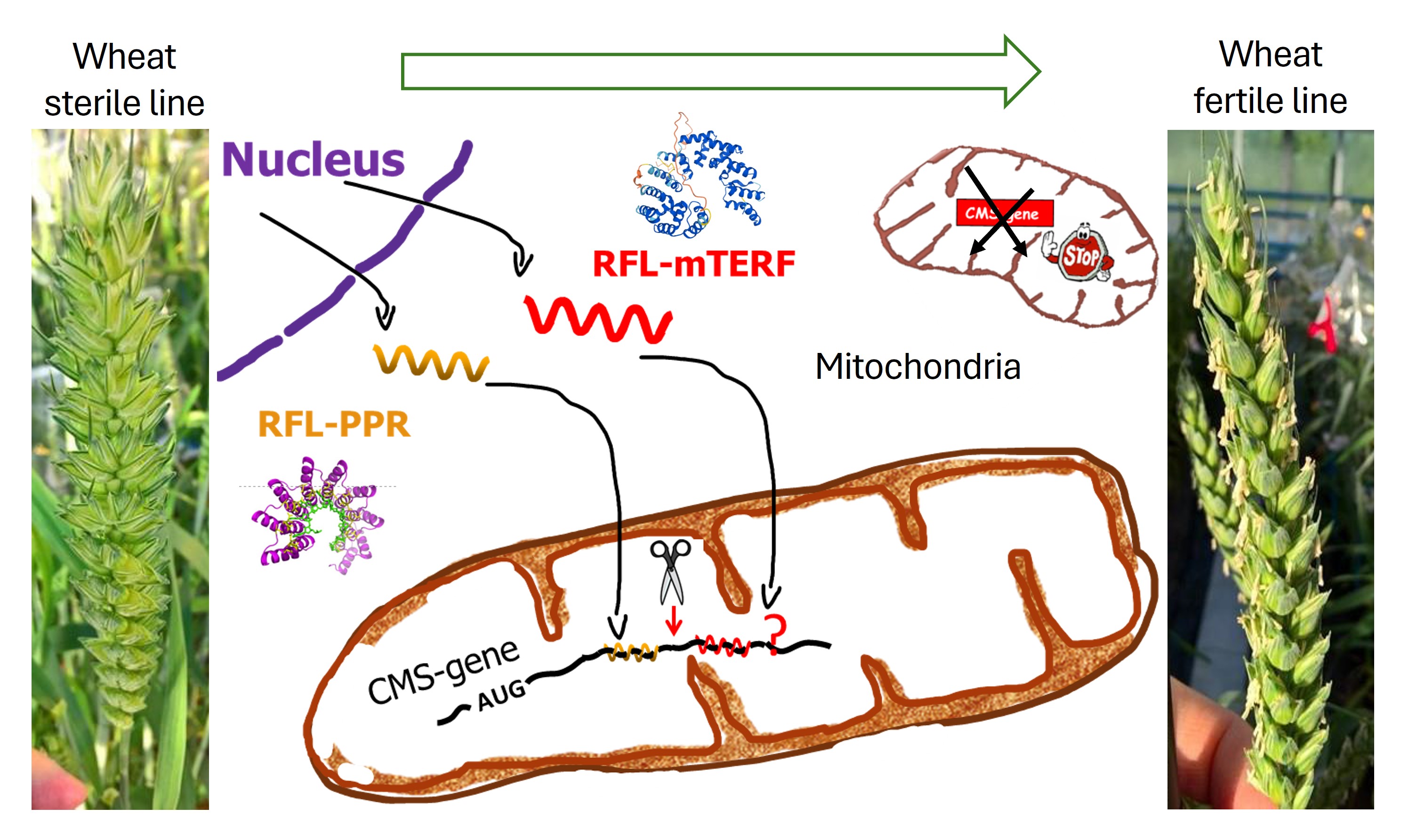How do mTERF proteins contribute to fertility restoration in plants?
Most Restorer-of-fertility genes in crops encode RNA-binding pentatricopeptide repeat (PPR) proteins. Plants have hundreds of PPR proteins but only a few act as restorers of fertility and these define a clade referred to as ‘Restorer‑of‑fertility‑like’ PPRs (RFL-PPRs).
Research themes
Project status
Content navigation
About

Background:
Most Restorer-of-fertility genes in crops encode RNA-binding pentatricopeptide repeat (PPR) proteins. Plants have hundreds of PPR proteins but only a few act as restorers of fertility and these define a clade referred to as ‘Restorer‑of‑fertility‑like’ PPRs (RFL-PPRs). Our research concerns the molecular characterisation of plant RFL genes and their application to hybrid crop breeding.
Recently, several candidates for restorer genes have been found to encode members of the mitochondrial transcription termination factor (mTERF) family in rye (Secale cereale) and barley (Hordeum vulgare). No sequence similarity between mTERF and PPR proteins exists, however, like PPRs, mTERFs function in RNA-associated processes and can directly bind to RNA. Nonetheless, mTERFs remain a largely understudied group of organellar RNA-binding proteins in plants.
Our discovery:
Our studies have shown that a group of mTERF genes share several genomic features with the RFL-PPR clade. We demonstrated that, as for RFL-PPRs, one clade of mTERF genes is highly expanded in plants, especially cereals and that they are organised into clusters adjacent to or intermixed with RFL-PPR clusters in the genome. Our analyses revealed that the location of RFL-mTERF clusters overlaps with mapped Rf loci in wheat and rye. Based on these discoveries, we named this clade RFL-mTERFs.
Project goal and funding:
Our identification of clustered mTERF sequences that share genomic locations and patterns of evolution with RFL-PPRs together with the demonstrated binding of mTERF proteins to organellar RNA are strong indicators mTERFs play a major and hitherto unappreciated role in fertility restoration. The goal of this project is to characterise the newly discovered RFL-mTERF clade and understand its contribution to fertility restoration in plants.
This project is funded by the Australian Research Council Future Fellowship and the Thomas Davis Research Grant for Marine, Soil and Plant Biology from the Australian Academy of Science.
Interested in the project? Please contact Dr Joanna Melonek for more details.

